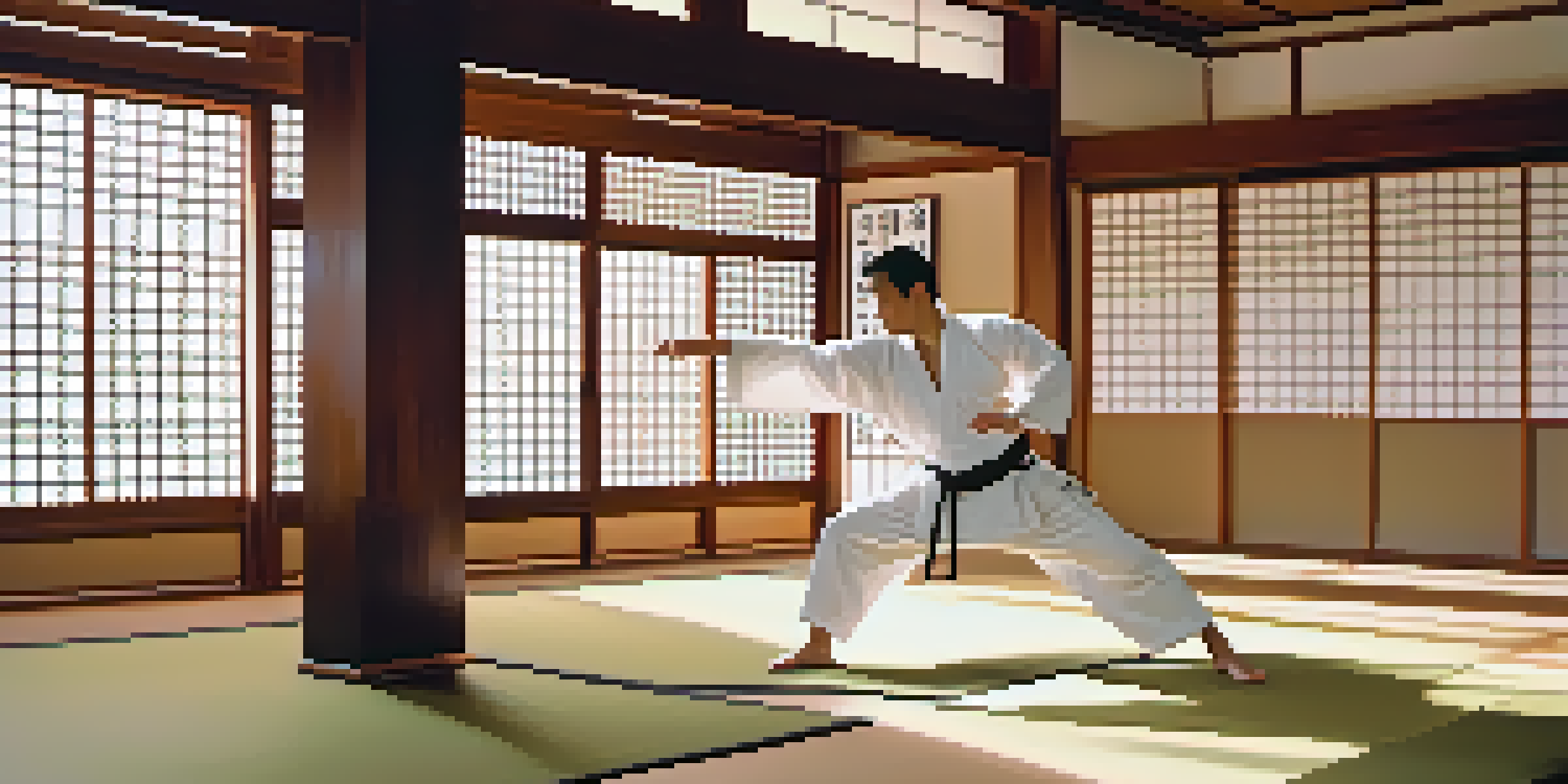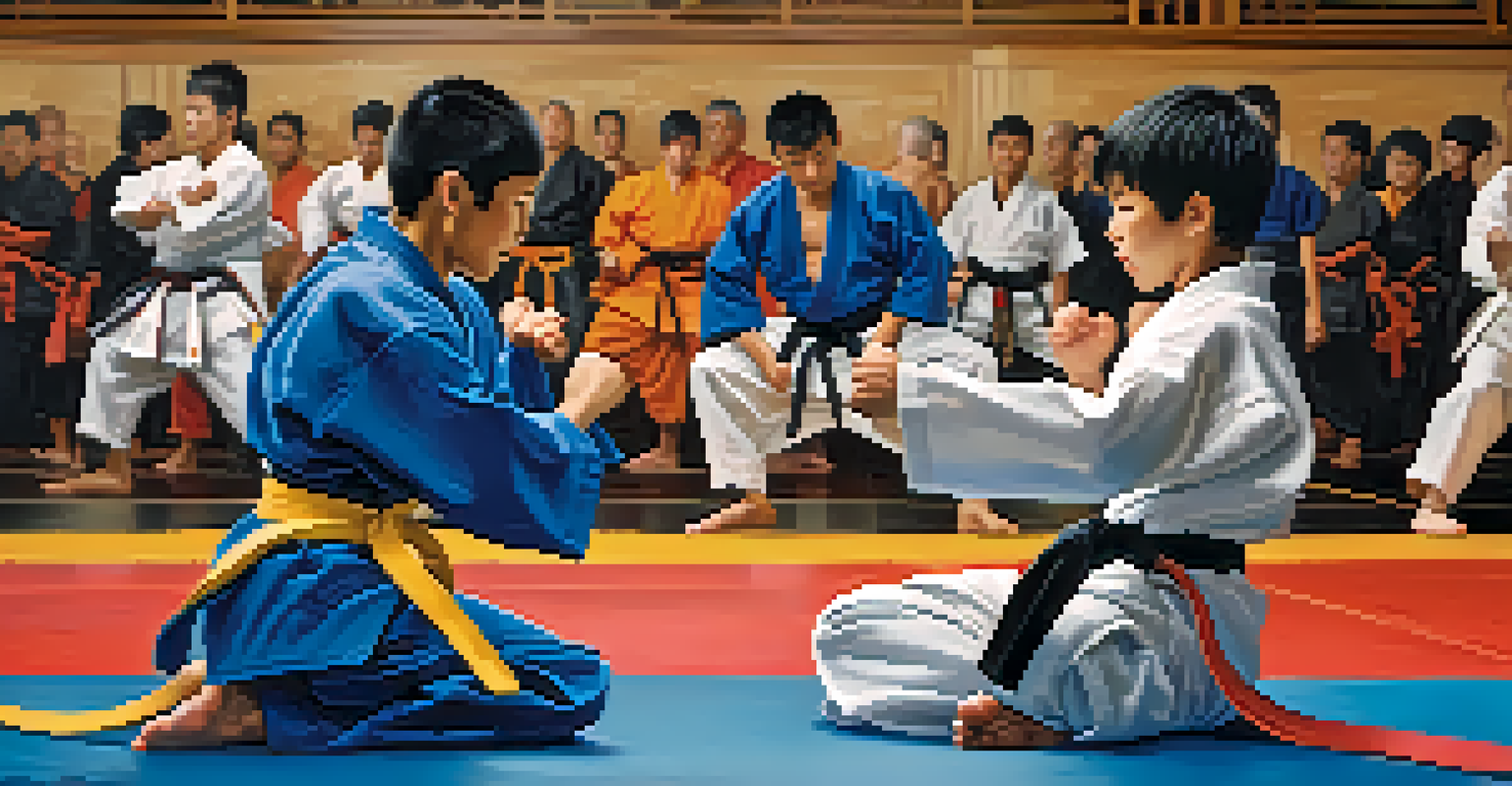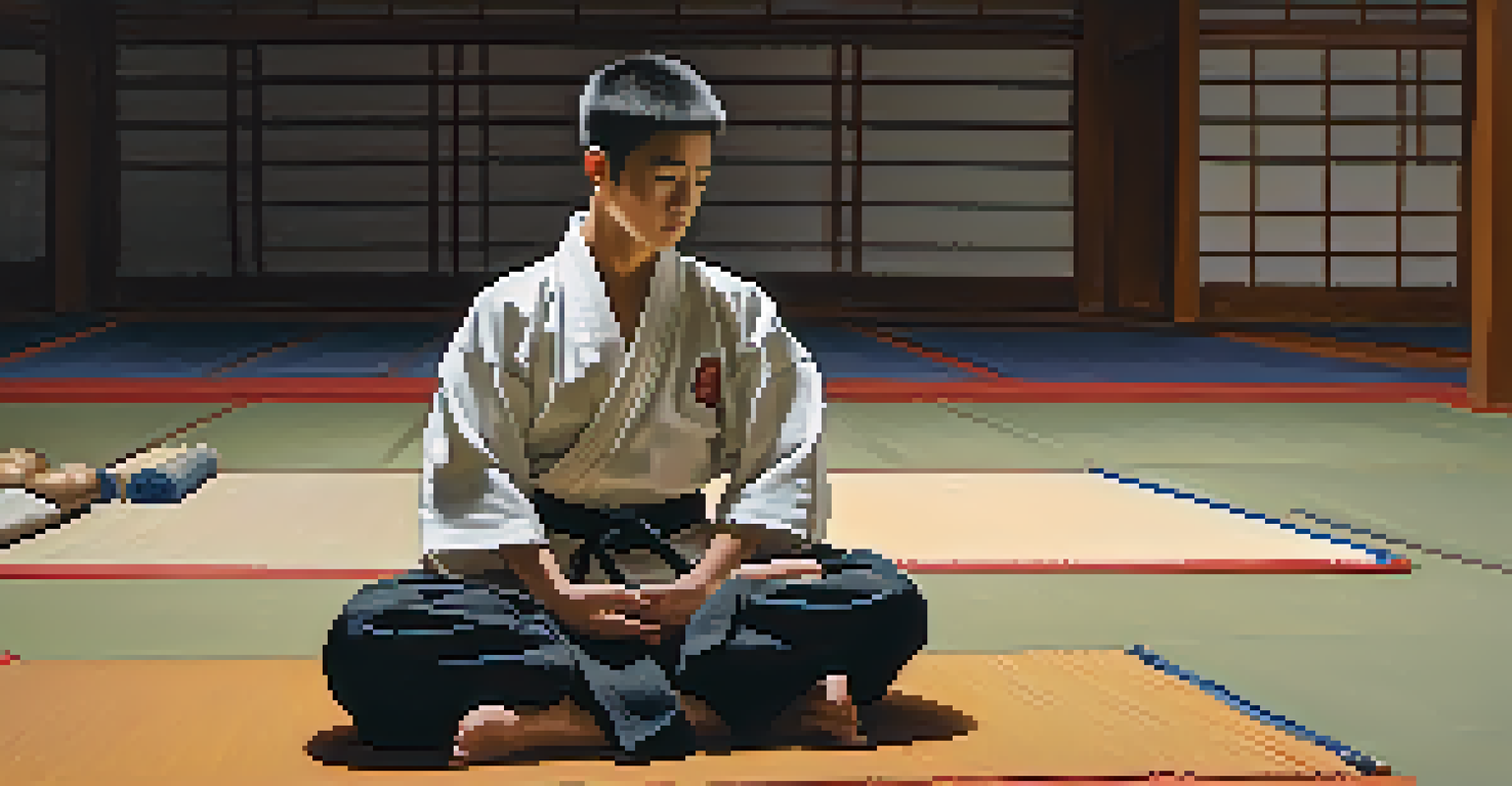Using Martial Arts to Promote Emotional Resilience

Understanding Emotional Resilience and Its Importance
Emotional resilience refers to our ability to adapt to stressful situations and bounce back from adversity. It's like a mental rubber band that allows us to stretch and recover without breaking under pressure. This capacity is crucial not just for overcoming challenges but also for personal growth and developing a healthier outlook on life.
It’s not that I’m so smart, it’s just that I stay with problems longer.
Life is full of ups and downs, and how we handle these fluctuations can significantly impact our mental well-being. Resilience helps us navigate difficulties, maintain relationships, and even pursue our goals with confidence. By fostering resilience, we empower ourselves to face whatever life throws our way.
Martial arts can play a pivotal role in building this resilience. Through discipline, practice, and a supportive community, practitioners learn to handle setbacks, manage stress, and develop a strong sense of self. This journey not only strengthens the body but also fortifies the mind.
Martial Arts: A Roadmap to Self-Discipline
Self-discipline is a core tenet of martial arts training. Each session requires commitment, focus, and perseverance, teaching practitioners to push through their limits. This discipline translates directly to other areas of life, reinforcing the idea that hard work and dedication lead to success.

Imagine a student who struggles with consistency. Through martial arts, they learn to show up day after day, even when motivation wanes. This routine builds a habit of discipline, proving that they can achieve their goals with effort and persistence.
Emotional Resilience is Key
Building emotional resilience allows individuals to adapt and thrive in the face of life's challenges.
Moreover, as students progress in their training, they set and achieve small milestones, further boosting their confidence. This cycle of discipline and achievement fosters emotional strength, teaching them that they can overcome challenges both in and out of the dojo.
Learning to Manage Emotions Through Practice
Martial arts training is as much about mental focus as it is about physical prowess. Practitioners are often taught to control their emotions during sparring and forms, which can be a powerful way to learn emotional regulation. This practice helps them understand their feelings and respond to them calmly and effectively.
The greatest glory in living lies not in never falling, but in rising every time we fall.
For instance, during a sparring match, a student may feel anger or frustration when things don't go their way. Instead of reacting impulsively, they must learn to channel those emotions into their movements. This not only improves their technique but also teaches them how to manage their emotional responses in real-life situations.
As they navigate these challenges on the mat, martial artists cultivate a greater awareness of their emotional landscape. This self-awareness is a key factor in building resilience, enabling them to face life's challenges with a balanced mindset.
Building Confidence Through Achievements
Confidence is a vital aspect of emotional resilience, and martial arts training provides numerous opportunities for students to build it. Whether it's earning a new belt or mastering a challenging technique, each achievement reinforces their belief in their abilities. These moments of success serve as reminders that they are capable of overcoming obstacles.
Consider the student who initially struggles with self-doubt. As they progress through their training, they experience small victories that gradually chip away at their insecurities. Each belt promotion and technique mastered becomes a stepping stone towards greater self-confidence.
Martial Arts Foster Self-Discipline
Training in martial arts instills self-discipline, which translates into greater confidence and achievement in various life areas.
With newfound confidence, practitioners are more willing to face challenges outside the dojo, whether it's speaking in public, tackling a difficult project at work, or managing personal relationships. This ripple effect showcases how martial arts can profoundly influence emotional resilience and overall well-being.
Cultivating a Supportive Community
Martial arts often foster a sense of community that can significantly bolster emotional resilience. Training alongside others creates bonds that give practitioners a support network during difficult times. This camaraderie not only enhances the training experience but also provides a safe space for sharing struggles and triumphs.
Imagine a dojo where students encourage one another through challenges, celebrating each other’s achievements and offering support during tough moments. This environment cultivates a sense of belonging, which is crucial for emotional well-being.
In times of stress or adversity, having a supportive community can make all the difference. Practitioners often find strength in their fellow students, reminding them they're not alone in their struggles and reinforcing their resilience.
Mindfulness and Focus: Key Components of Training
Many martial arts incorporate mindfulness practices, which are essential for emotional resilience. By focusing on their breath and movements, practitioners learn to stay present and grounded, even amid chaos. This mindfulness can help reduce anxiety and improve emotional regulation.
Picture a student preparing for a sparring match. Instead of letting nerves take over, they practice deep breathing and visualization techniques to center themselves. This focus allows them to approach the situation calmly, enhancing their performance and emotional control.
Community Enhances Resilience
A supportive community in martial arts cultivates emotional strength by providing encouragement and shared experiences.
Through consistent practice of mindfulness, martial artists develop a greater capacity to manage stress and navigate emotional challenges. This skill not only benefits their training but also equips them to deal with everyday pressures more effectively.
The Lifelong Benefits of Martial Arts Training
The benefits of martial arts extend far beyond the dojo, impacting all aspects of life. As practitioners develop resilience, confidence, and emotional control, they become better equipped to handle life's inevitable challenges. These skills can lead to improved relationships, career success, and overall well-being.
For example, someone who has trained in martial arts may find themselves better prepared to handle workplace stress or personal conflicts. They can draw on their training to maintain composure and approach situations with a clear mind.

Ultimately, the lessons learned through martial arts training can last a lifetime, shaping individuals into more resilient, confident, and emotionally intelligent beings. This journey not only transforms their approach to challenges but also enriches their lives in countless ways.